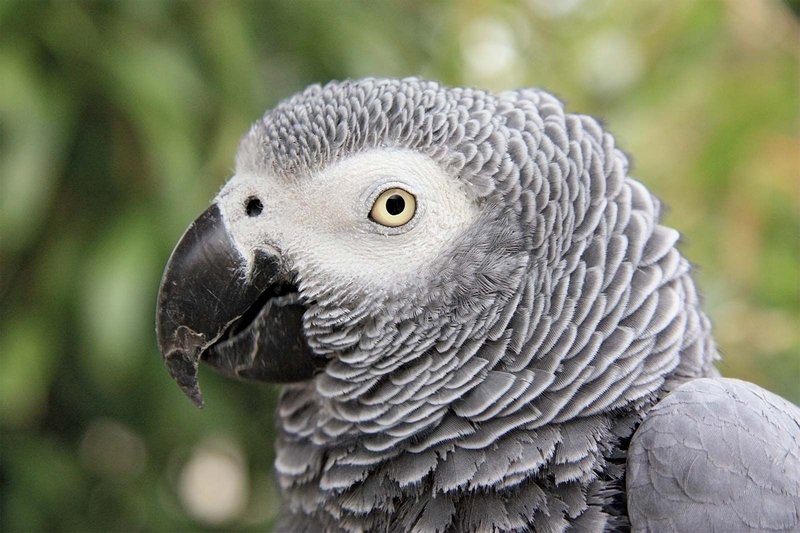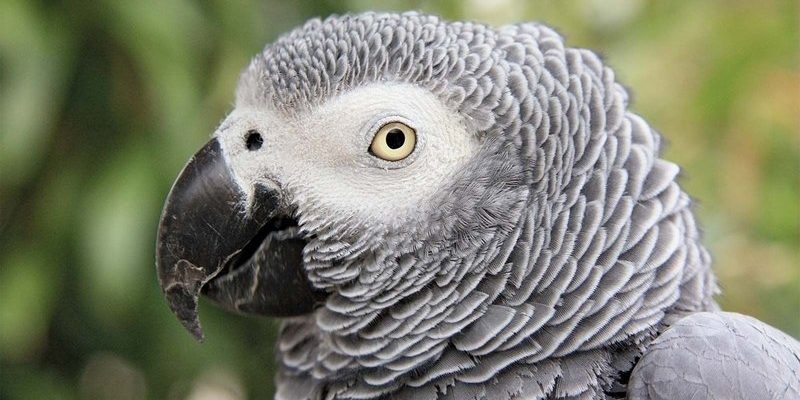
Picture it this way: you’re at a coffee shop, and everyone around you is speaking a different language. Some conversations are loud and boisterous, while others are soft and intimate. By tuning in, you can start to pick up on the emotional context, even if you don’t fully understand the words. That’s similar to what you’ll experience with your African Grey parrot! Let’s dive into the fascinating world of their vocalizations and explore what these charming sounds really mean.
Why Vocalizations Matter for African Grey Parrots
African Grey parrots are known for their intelligence and ability to mimic speech. But why do they vocalize so much? For one, vocalizations are their primary way of communicating. In the wild, these birds live in flocks and rely on vocal sounds to stay connected, warn each other of danger, and attract mates. By vocalizing, they express their emotions and needs, making it vital for their well-being.
When you bring an African Grey into your home, you’re essentially entering their world. Their vocalizations provide insight into how they’re feeling. Do they sound excited? Nervous? Content? Paying attention to their sounds can help you better understand their needs and provide a supportive environment.
African Greys can also mimic human speech, which adds a unique twist to their communication style. With this ability, they may pick up words and phrases they hear regularly, which can lead to some hilarious—and sometimes unexpected—results!
Common Vocalizations and Their Meanings
Let’s break down some of the common vocalizations you might hear from your African Grey:
- Chirping: This light, happy sound often indicates that your parrot is feeling content and relaxed. Think of it like a cheerful tune playing in the background.
- Squawking: A loud squawk might signal that your parrot is upset or wants attention. You might be wondering why they’d squawk at all; it’s their way of expressing frustration or discomfort.
- Whistling: Whistling can mean several things. Sometimes, it’s an invitation for play or interaction, while at other times, it can be a call to other birds. It’s like an enthusiastic “Hey, come join me!”
- Talking: When they start mimicking phrases, it’s essential to pay attention. If they repeat something often, like your name or “Hello,” it often means they want to engage with you. It’s your cue to chat back!
Recognizing these sounds can help you respond appropriately. If your Grey is chirping happily, join in the fun! But if they’re squawking, it might be time for some extra attention.
Understanding Emotional Context Through Sounds
African Greys are emotional beings, and their vocalizations can reflect their feelings. Just like when a friend tells you about their day, their tone can give you clues about how they really feel. Here’s a closer look at how you can interpret their sounds:
- Excitement: When your parrot is excited, you might hear a flurry of whistles, chirps, or even joyous squawking. It often happens when they see you approaching or when it’s mealtime. Think of it as their version of shouting “Yay!”
- Anxiety: If your bird is feeling anxious, you may notice more frantic calls or repetitive sounds. This can signal stress, especially if there are changes in their environment, like new pets or loud noises.
- Affection: Just like you might speak softly to someone you love, African Greys will produce soft cooing or gentle chirps when they feel attached to you. It’s their way of saying, “I like you!”
By tuning into these emotional cues, you can foster a stronger relationship with your parrot. You’ll learn when to engage with them and when to give them a little space.
The Importance of Positive Reinforcement
Positive reinforcement plays a huge role in how your African Grey vocalizes. If they make a sound and you respond positively, they’ll associate that vocalization with a reward. This can lead to more loud and proud sounds or even new words! Here’s how to use reinforcement effectively:
1. Respond to Sounds: Whenever your parrot makes a sound, acknowledge it. If they chirp and you respond with a smile or talk back, they’ll know they’ve done something right.
2. Encourage Talking: If your Grey mimics a word, repeat it back with enthusiasm! This reinforces the behavior and encourages them to keep talking.
3. Create a Routine: Birds thrive on routine. If they know when to expect interaction, they may vocalize more during those times, knowing they’ll get positive feedback.
Ultimately, this creates a fun environment where your parrot feels comfortable expressing themselves.
Vocalization Troubleshooting: What If They Stop Talking?
It can be concerning if your usually vocal African Grey suddenly becomes quiet. Here are a few reasons why this might happen and how to address it:
- Stress or Change: Any change in the home, like moving or new pets, can stress your parrot. Try to maintain a consistent environment and be patient as they adjust.
- Health Issues: If your parrot suddenly stops vocalizing, it’s essential to consider their health. Look for other signs of illness, like changes in appetite or behavior, and consult your vet if needed.
- Loneliness: African Greys are social creatures. If they feel isolated, they may become quiet. Spend time with them, engage in play, and encourage interaction.
By understanding these factors, you can help your parrot feel more comfortable and encourage those sweet sounds to return!
Understanding your African Grey parrot’s vocalizations is like learning a new language. Each sound carries meaning and emotion, creating a unique connection between you and your feathered companion. By actively listening to their chirps, squawks, and whistles, you’ll deepen your relationship and enhance their happiness.
So, whether they’re excitedly chirping at breakfast or mimicking your laugh, remember that each sound is an expression of their feelings and needs. With a little patience and practice, you’ll become fluent in your parrot’s language, paving the way for a joyful and fulfilling companionship. Let the adventures in communication begin!

